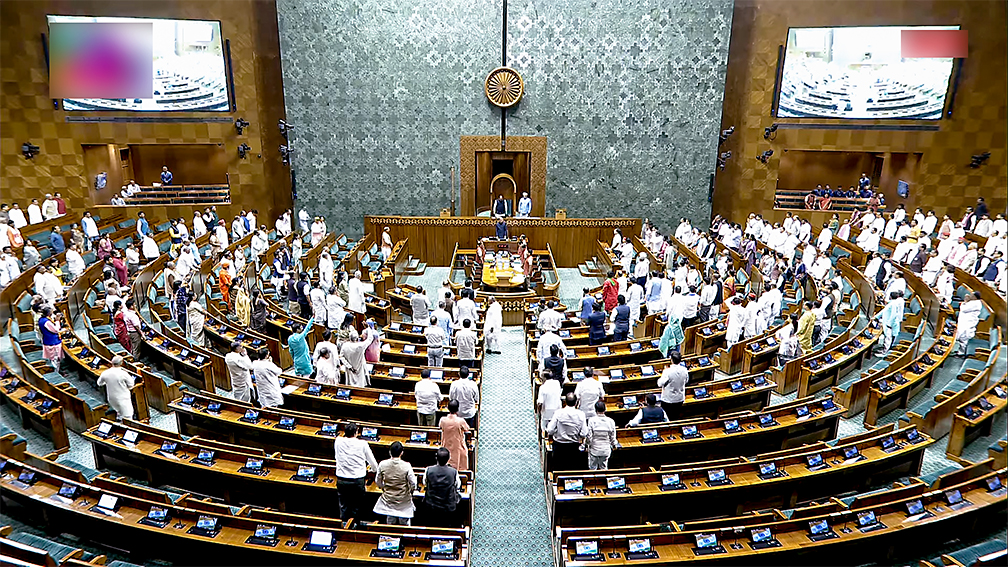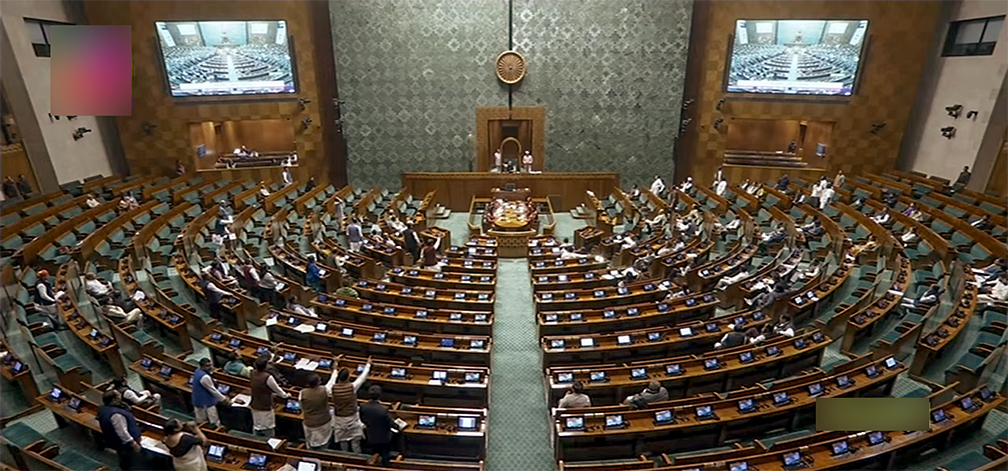The new laws received Parliament’s nod last year and President Droupadi Murmu gave her assent on Dec 25, 2023…reports Asian Lite News
In a move that will completely overhaul the criminal justice system in the country, three new criminal laws will come into effect from today, July 1.
The Bharatiya Nyaya Sanhita (BNS), the Bharatiya Nagrik Suraksha Sanhita (BNSS), and the Bharatiya Sakshya Adhiniyam (BSA), passed in Parliament last December, will replace the Indian Penal Code (IPC), 1860, the Criminal Procedure Code (CrPC), 1973, and the Indian Evidence Act, 1872 respectively.
Several new provisions have been incorporated in the three new criminal laws to suit contemporary times and technologies in vogue.
The three new laws received Parliament’s nod on December 21, 2023. President Droupadi Murmu gave her assent on December 25, 2023, and was published in the official gazette on the same day.
As per the notification, the three laws will focus on justice rather than punishment and are aimed at providing speedy justice, all the way, strengthening the judicial and court management system emphasising ‘access to justice by all’.
Bharatiya Nyaya Sanhita will have 358 sections (instead of 511 sections in the IPC). A total of 20 new crimes have been added to the bill, and the imprisonment sentence has been increased for 33 of them.
The amount of the fine has been increased in 83 crimes and mandatory minimum punishment has been introduced in 23 crimes. The penalty of community service has been introduced for six crimes and 19 sections have been repealed or removed from the bill.
Bharatiya Nyaya Sanhita has introduced a new chapter titled ‘Crimes against Women and Children’ to deal with sexual crimes.
Provisions related to the gang rape of a minor woman will become consistent with the Protection of Children from Sexual Offences Act (POCSO), and a provision has been made for life imprisonment or death penalty in the case of girls below 18 years of age.
There is the provision of 20 years imprisonment or life imprisonment in all cases of gang rape and the new crime category of gang rape of a woman under 18 years of age in the Sanhita. The Sanhita provides targeted penalties for persons fraudulently engaging in sexual intercourse or promising to marry without true intention to marry.
Terrorism has been defined for the first time in the Bharatiya Nyaya Sanhita, and it has been made a punishable offence.
The new provisions include armed rebellion, subversive activities, separatist activities or any act threatening the sovereignty or unity and integrity of India. Small organized crimes have also been criminalized, punishable with imprisonment of up to seven years.
Bharatiya Nagrik Suraksha Sanhita will have 531 sections (in place of 484 sections of CrPC). A total of 177 provisions have been changed in the bill, and nine new sections as well as 39 new sub-sections have been added to it. The draft act has added 44 new provisions and clarifications. Timelines have been added to 35 sections and audio-video provision has been added at 35 places. A total of 14 sections have been repealed and removed in the Sanhita.
The timeline has been added to 35 sections of Bharatiya Nagrik Sukraksha Sanhita, which will make the speedy delivery of justice possible. The Bill prescribes a time limit for initiation of criminal proceedings, arrest, investigation, charge sheet, proceedings before magistrate, cognizance, charges, plea bargaining, appointment of Assistant Public Prosecutor, trial, bail, judgment and punishment, and mercy petition.
Bharatiya Sakshya Adhiniyam will have 170 provisions (instead of the original 167 provisions, and a total of 24 provisions have been changed. Two new provisions and six sub-provisions have been added and six provisions have been repealed or deleted in the Adhiniyam.
The complete implementation of new criminal laws will ensure an end to ‘tareekh pe tareekh’ era and justice will be given in three years as earlier informed in the Parliament by Union Home Minister Amit Shah.
This process of reform in the three laws of the criminal justice system was started in 2019 and 3,200 suggestions in this regard were received from various stakeholders.
Speaking on the three new laws on June 29, Union Home Minister Amit Shah said that the three laws of the British era that were governing the Indian Judicial system have been changed on the concept of delivering speedy justice.
Several legal experts say there are big challenges ahead for law-enforcing agencies, judicial officers, and legal professionals as the new laws come into force.
The passing of the three criminal law bills in Parliament last year sparked a series of debates regarding the need to take such steps towards evolution in the field of law with the introduction of new criminal laws.
“The way the government rushed to bring these laws in Parliament and the way it implemented rushed to, is not desirable in a democracy. These laws were neither adequately discussed in the Parliament committee nor extensively discussed in the House, even no consultation held with the stakeholders,” former Union Law Minister and Congress leader Ashwini Kumar told.
“Now, the opposition parties demanding a change in the legal architecture of criminal laws should be preceded by meaningful deliberations between all the stakeholders that appears not to have been done. It is the only grievance of the opposition parties that should be addressed by the ruling party,” he added.
“In the New Criminal Laws, law enforcement agencies have been given unfettered powers without checks and balances and safeguards and safety provisions have been ignored, which will be prone to misuse. Under the New Criminal Laws, there will be potential violations of civil liberties,” Advocate Sumit Gehlot said. (ANI)

